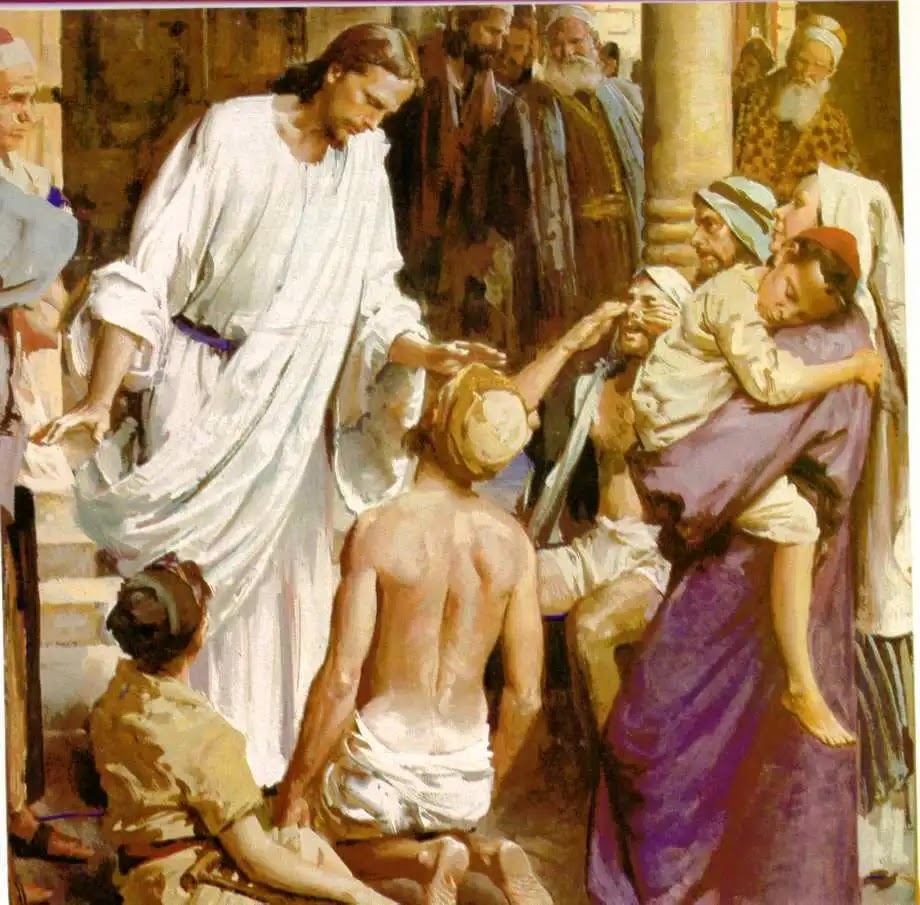Fifth Sunday of the Year February 04, 2024
Job 7:1-4, 6-7; 1 Corinthians
9:16-19, 22-23; Mark l: 29-39.
This real story is said of the German concentration camp during the Second World War. In the camp were a group of rabbis and learned Jews along with persons who had been in high standing prior to their arrest. They had to work for six and half days every week but on Sunday afternoons they were left in relative peace. One such afternoon some of the learned Jews in their despair decided to put God on trial. The rabbis acted as judges and witnesses came forward for defense and for the prosecution. The case for the prosecution was overwhelming. They had only to look around them: they were being wiped out as a race; many of their families had already died in the gas chambers. They were unable to look for their dear ones. How could a good God allow this to happen? The judges, despite a stout defense had no difficulty in reaching the verdict. God was guilty as charged, guilty of abandoning his chosen people. Silence fell upon the court. Then an elderly Jew got to his feet and said: “Nevertheless, let us not forget…it is time for our Evening Prayers.”
There is a part of us that is
tempted to look for somebody to blame for all the things that go wrong in our
lives. More often than not, we blame the very people we once looked up to for
an answer. Today’s first reading from the book of Job is a futile attempt to
answer the perennial question, “Why do bad things happen to good people?” The
Gospel shows us how Jesus spent himself in alleviating the pain and suffering
around Galilee by his preaching and healing ministry rather than by pondering
on universal solutions for the problem of worldwide evil.
There is a story about a couple
who had been married for more than thirty years. One evening, when the husband
returned from work, he found his wife packing. "What in the world are you
doing?" he asked. "I can't handle it anymore," she replied.
"I'm tired of all the bickering and arguing and complaining that's been
going on between us all these years, I'm leaving." Whereupon, the startled
husband suddenly dashed to the bedroom, pulled a suitcase out of the closet,
filled it with his belongings and ran after his wife, saying, "I can't
handle it any more either. I'm also leaving…. with you! Let’s take a
vacation!!!"
Today’s first reading tells the
story of a man named Job who is at a point in his life where he can't handle it
anymore. He expresses himself as a man without hope. In the first reading Job
feeling abandoned by friends and by God when confronted with sufferings, offers
the dark reflection on the world. The
story of Job expresses a typical human problem that bad things happen to good
people and the question whether people can serve God selflessly, without hope
of any reward. In all his suffering, Job
did not know what we know, that he was being tested by God to see if he would
remain faithful in his service to God. He did not know Satan was challenging
God regarding his loyalty. He did not know that in the end, God would reward
his faithful loyalty, blessing him with more than he had in the beginning. Job
and his friends did have an extended dialogue on sufferings. One said that Job
had sinned. Another said that Job should repent. The last said that Job's guilt
deserved punishment. Even his wife questioned his integrity, telling him to
curse God so he could die. But Job wanted to express his fidelity to God.
When Mark in his Gospel describes
the typical day in the life of Jesus, he explains the first of his missionary
activity in Galilee. Jesus taught as one
with authority, preached convincingly the Word of God in the Synagogue of
Capernaum and by a single command drove the unclean spirit out of a man. Later the same day after sundown, he worked
many more miracles of healing, beginning with Peter’s mother-in-law and drove
out many other demons. They brought many persons who were sick and he healed
their illness. Early next morning he
left Peter’s house and went to a lonely place to pray. Here Peter and his companions found him in
prayer and told him that all people were waiting to see him in Capernaum. But Jesus told them that his plan was not to
restrict himself to one place but to travel to other towns and villages of
Galilee to bring them the good news of the Messianic Kingdom.
There is a vast difference
between the way God thinks and the way we think about our human life. We need
to maintain a balance between our human nature and our spiritual connection
with God. There is no answer for everything in this world. At certain point, we
need to surrender to God and His wisdom. If we had answer for every single
little thing, God wouldn’t have remained as God. Despite our weaknesses, we can find strength
through prayer, reflection, and selfless giving. Jesus, as a model for us,
sought guidance through prayer to understand God’s will. May we all find that
meaningful life by seeking God’s presence and sharing love with others.
Happy Sunday


No comments:
Post a Comment